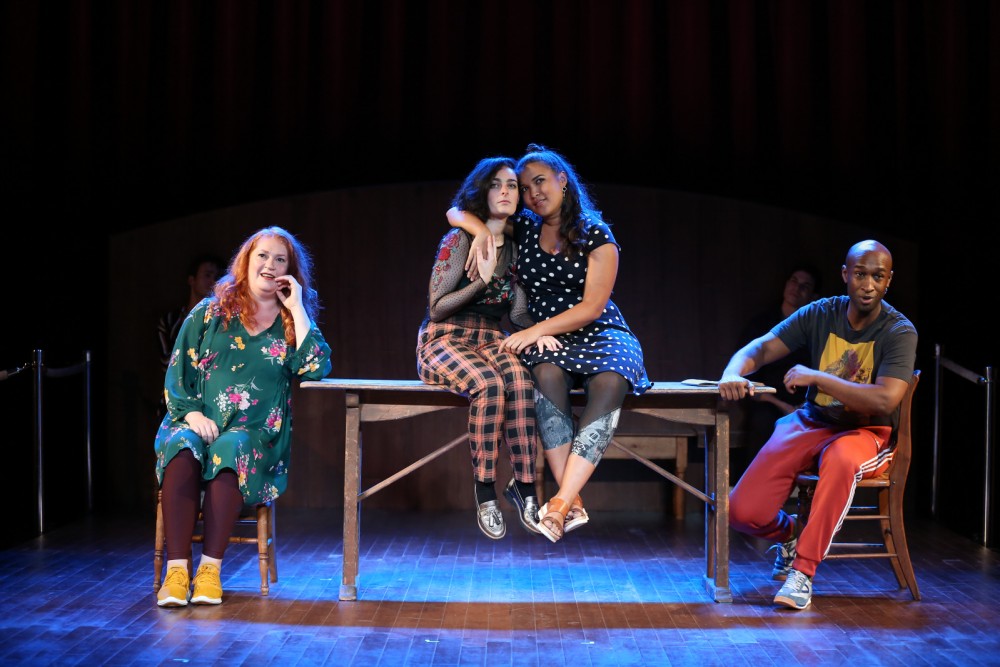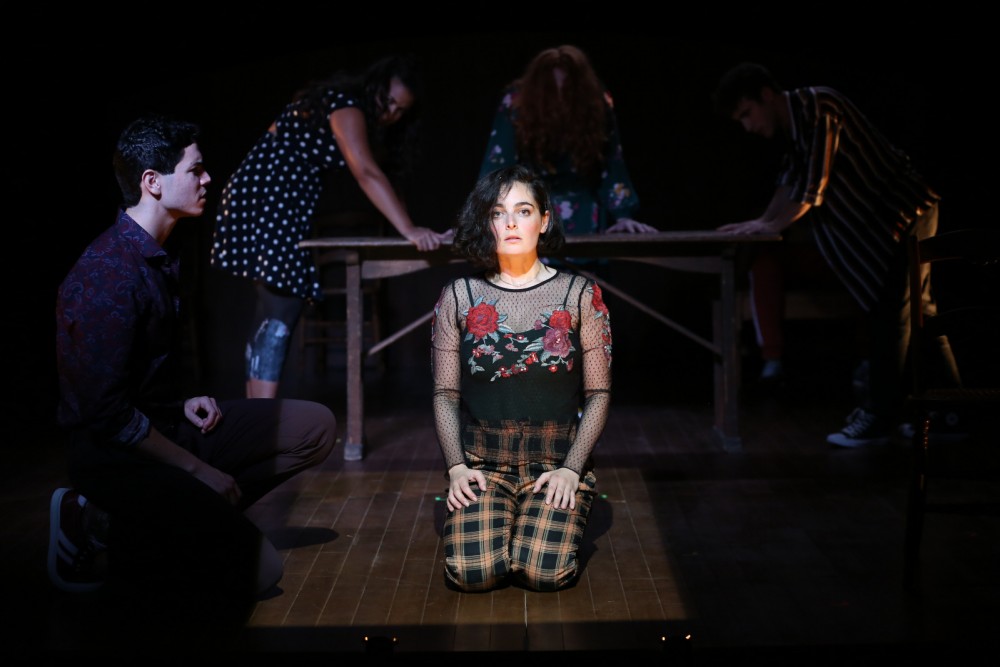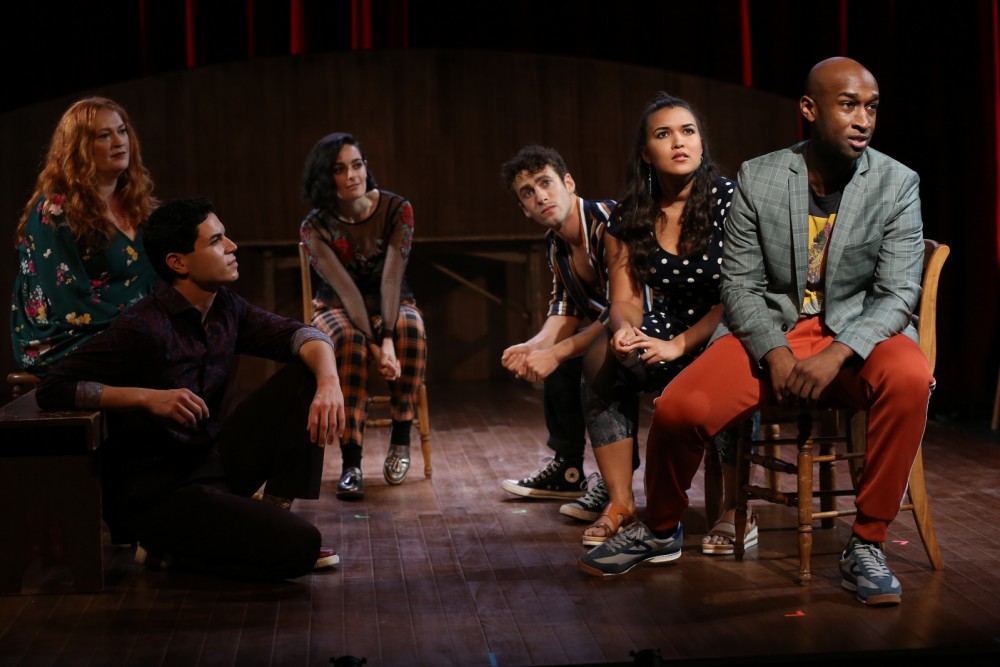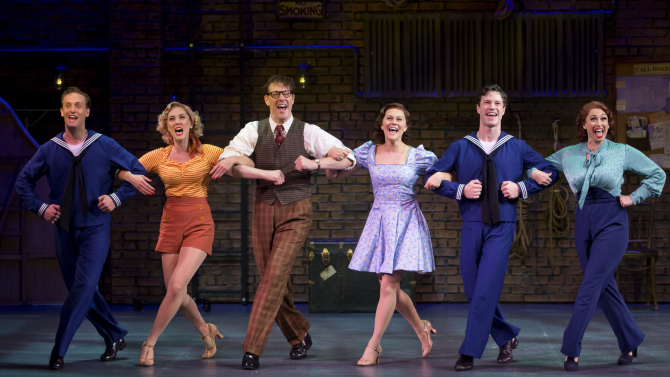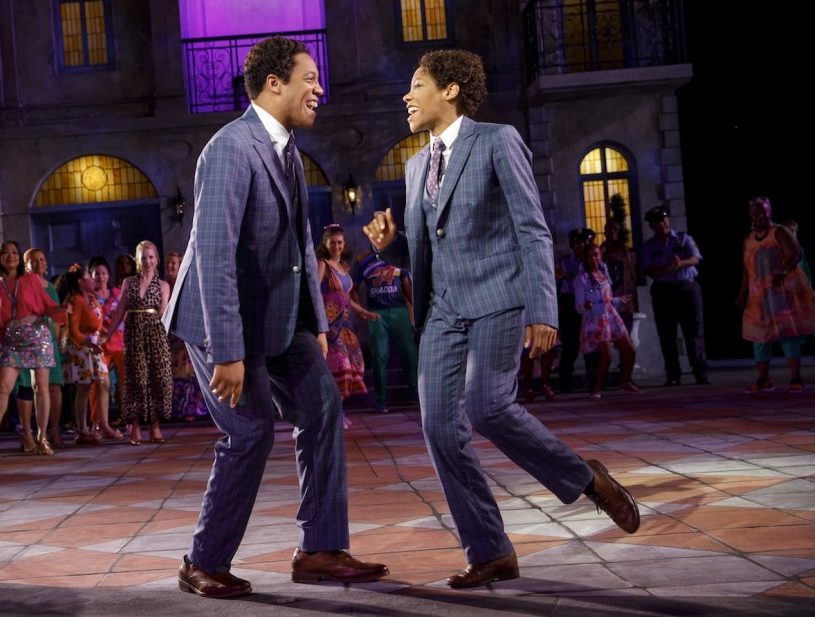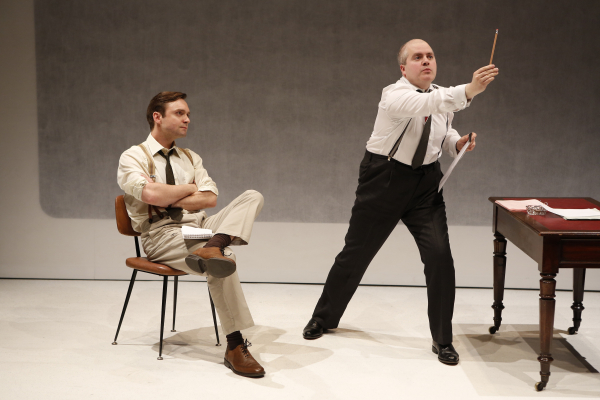by Carole Di Tosti
The third American woman poet to win a Pulitzer Prize for Poetry (1923) was Edna St. Vincent Millay. Millay’s rooted passions drove deeply and widely over the bridge of life into eternity. The ethereal magnificence of her artistry is incisively captured in the musical production Renascence. I cannot praise this glorious and breathtaking musical enough. Adequate words escape me, perhaps because of the lyricism of the amazing poet (Hannah Corneau is gobsmacking as Millay) who is the subject of this beautifully resonant production apt for our times.
From the divine score by Carmel Dean, to the well thought-out book by Dick Scanlan (he directed) with the lyrics composed from Millay’s poetry, this tribute to one of our foremost American woman poets by The Transport Group gives those unfamiliar with Millay’s work a unique perspective from which to appreciate her genius. The musical beckons us to understand Millay as a maverick prodigy who changed the world of poetry after her poem “Renascence” received fourth place in a poetry contest when it should have won first prize.
The subsequent scandal vaulted her into public notoriety. Even the poet who won first place declared her poem was better than his. Ironically, he didn’t give her the prize money, though the second place winner tried to. In a double irony, the names of the first and second place winners have gone into poetry oblivion, save they won in a contest against Millay. On the other hand, it is her work this superb musical venerates. It is her originality and courage we recognize, especially in her choice to live her life freely, unapologetically as she pleased.
That Millay rejected both the first prize (sans money) and the second prize (with money) indicates her character and brilliance. Despite the loss, she willed herself to believe in her own greatness. Steadfast, she resolved in her heart that “Renascence” was extraordinary, not with an arrogance we’ve become used to via social media. But from her own intuition and erudition in having been influenced by Shakespeare and classic writers her mother taught her about.
This determination brought her success. “Renascence” remained the turning point, that eventually sent Millay onto her glorious poetic adventures and writer’s journey into world renown. From reading about the scandal of “Renascence” a sponsor became interested in her work. Millay received support from a woman who offered to pay for Vassar College and Millay accepted. Though Millay hated the pretentious social milieu, she made friendships and used the experience to expand her horizons. She experimented, discovering her own sexuality with women, learned, and explored to her own advantage until she decided her next steps. This was to move to New York City to pursue her writing career.
This production follows Millay’s writing of “Renascence” and its impact on her life, career and her family’s lives. It is wisely succinct, allowing the soaring music and Millay lyrics to dramatically develop the plot. Cleverly and humorously the production dips into her life at Vassar and highlights her tendency to flout the stultifying norms and be a visionary. The music employed to reveal this is just perfect.
Wisely, Scanlan effuses more than dryly details. The ethos of the artistic life and what artists experience to make a name for themselves, every artist will recognize, groan over, appreciate. The take-away is that Millay’s courage and persistence despite her impoverished circumstances moved conceptualization into reality.
We meet her strong, visionary, talented mother (the excellent Katie Thompson) and siblings, editor and others (the wonderful and sensitive Mikaela Bennett, Danny Harris Kornfeld and Jason Gotay). And we follow the arc of Millay’s father who abandoned the family (the exceptional Donald Webber, Jr.). After Millay becomes famous and financially supports her family, he comes to her hat in hand.
The ensemble which exchanges male/female parts is anointed with golden-throated voices, perfect for the haunting, gorgeous music which pairs so well with Millay’s poetry. Their portrayals, seamlessly moving from character to character with adroit immediacy, suggest the individuals in Millay’s life so that we empathize with them.
Kudos go to the orchestra: Geraldine Anello (Music Director, Conductor/Piano), Nathan Perry, Sylvia D’Avanzo, Emily Brausa, Lynette Wardle, Deborah Avery, Rheagan Osteen, Lauren Hendrix, Michael Starobin. And to choreographer Scott Rink. Also, kudos go to the design team: Brett J. Banakis, Asta Bennie Hostetter, Jen Shriever, Kai Harada.
Photos: Carol Rosegg
The must-see musical Renascence runs with one intermission until 17 November at The Abrons Art Center (466 Grand Street). You can pick up tickets online at https://web.ovationtix.com/trs/pr/998215


